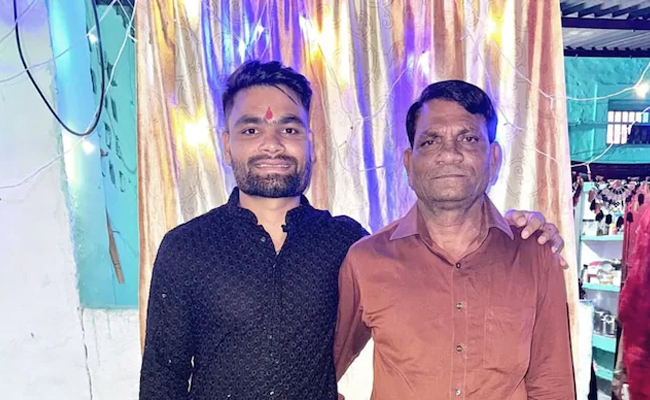Mangaluru: According to a report by The News Minute, an FIR registered against Chandru Moger, the coordinator of the Hindu Janajagruti Samiti, regarding a hate speech incident from 2022 has been transferred from Bengaluru to Mangaluru. The transfer took place on May 17 when the Sanjay Nagar police in Bengaluru handed over the case files to the Urwa Police Station in Mangaluru for further investigation. The investigation revealed that the hate speech video originated from a Sanatan Sanstha office in Mangaluru.
During the investigation, the Bengaluru Crime Branch contacted Twitter to obtain information about the IP address associated with the system that shared the video. It was discovered that the IP address was traced back to Mangaluru.
The FIR filed against Chandru Moger includes charges under various sections of the IPC, such as promoting enmity between different groups and criminal intimidation. In the video, Moger made controversial statements accusing Muslims of having a monopoly over the fruit business and alleging that they would spit on fruits and bread before selling them. These claims are part of the false propaganda known as "thook jihad" in Hindutva circles.
ALSO READ: Belthangady Mahila Cong files police complaint against MLA Harish Poonja for remarks on Siddaramaiah
Various political figures, including former Karnataka Chief Minister HD Kumaraswamy, had criticized Moger's statements. Kumaraswamy denounced the directive issued by the Hindutva unit to boycott purchasing fruits from Muslims as a betrayal against the country and farmers.
Despite initial inaction by the police, Sheikh Zia Nomani, the All India Majlis-e-Ittehadul Muslimeen (AIMIM) Bengaluru spokesperson, lodged a complaint on April 6, 2022, at the Sanjay Nagar police station, seeking the registration of an FIR against Moger for defaming the Muslim community and inciting communal hatred and violence. The FIR has now been transferred to the Urwa Police Station in Mangaluru.
Mangaluru City Police Commissioner Kuldeep Jain confirmed the transfer of the FIR but stated that no one has been questioned in the case thus far. The investigating officer, Sudarshan, mentioned that the investigation is in its early stages and no significant details can be provided at this time.
Let the Truth be known. If you read VB and like VB, please be a VB Supporter and Help us deliver the Truth to one and all.
Aligarh/Noid (PTI): Indian cricketer Rinku Singh's father, Khanchand Singh, passed away at a hospital in Greater Noida early Friday following a prolonged illness, family sources said.
Dr. Sunil Kumar, spokesperson of Yatharth Hospital in Greater Noida, where the cricketer's father was admitted, said Khanchand Singh was battling liver cancer.
"His condition had deteriorated significantly in recent days, following which he had been admitted to the hospital on February 21. He was placed on ventilator support and breathed his last early this morning," Kumar said.
Due to his father's critical condition, Rinku had to return home midway through the T20 World Cup. However, he rejoined the Indian team ahead of the match against Zimbabwe on February 26. He had also recently visited Noida to meet his father.
Rinku's former coach, Masood Amini, told PTI Videos in Aligarh that Khanchand Singh had been battling advanced-stage liver cancer and was in the terminal phase of the illness.
"He had been unwell for quite some time. He was suffering from liver cancer. For the past three to four days, he was on ventilator support," Amini said.
Amini said Rinku's father worked tirelessly to support his family and educate his children.
"He started out working as a gas cylinder delivery man and worked very hard to raise his family," he said.
The 28-year-old cricketer, a resident of Aligarh district in Uttar Pradesh, credits much of his success to his father. Khanchand Singh, who worked in gas cylinder distribution in Aligarh, supported his son's dream of becoming a cricketer despitefacing financial hardships.
The family said Khanchand Singh's last rites will be performed in Aligarh, and Rinku will attend the funeral.





